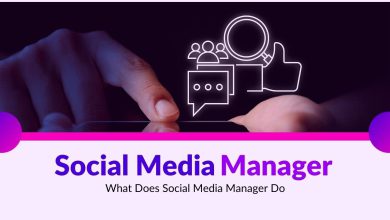
Social media has become an indispensable tool for businesses of all sizes to reach and engage with their target audience. With billions of active users on platforms like Facebook, Instagram, LinkedIn, and Twitter, there is a huge opportunity to generate leads and grow your business. Whether you’re just getting started with social media marketing or looking to refine your strategy, these 7 tactics will help you effectively generate leads and drive conversions. From utilizing social media ads to hosting live events and everything in between, these methods are proven to help businesses reach their lead-generation goals. So, let’s dive in!
1. Utilize social media ads:
In the digital age, social media is one of the most effective platforms to generate leads. Utilizing targeted advertising on popular networks such as Facebook and Instagram can help businesses reach their ideal customers, resulting in increased conversion and sales. When done correctly, social media ads can be a very cost-effective way to reach your target audience and generate more leads for your business.
By optimizing targeting options like age, gender, location, and interests on these platforms, businesses can precisely tailor their messages and create campaigns that will engage their ideal customers. Additionally, companies have access to a range of ad formats to attract potential customers with visuals or videos that are tailored specifically to their needs. With careful planning and execution of social media campaigns, business owners can gain maximum exposure while achieving optimal results from their lead-generation efforts.
2. Offer exclusive content or promotions:
Offering exclusive content or promotions to your followers is a great way to entice them to provide their contact information. This strategy works especially well on platforms like Twitter and Facebook, where users are more likely to engage with promotional content.
By providing exclusive content, such as e-books, webinars, or discount codes in exchange for users’ contact information, businesses can easily generate new leads while gaining valuable insights into customer preferences and interests. Not only that, but offering rewards also encourages customers to follow your brand and share your content with their friends and family. This helps create a larger network of potential leads that you can turn into loyal customers over time.
3. Use social media groups:
Joining relevant groups and engaging with the community by providing valuable insights can have a positive effect on lead generation. It’s important to take the time to join relevant social media groups, share your expertise and engage in conversations. By doing so, you can build credibility, spread awareness of your brand and show potential customers that you are an expert in your field.
Answering questions and offering advice are key components of successful engagement in these social media groups. This will demonstrate your authority on the subject matter and help potential customers see that you understand their needs. Additionally, it’s important to keep track of any feedback or comments from users within each group as this will allow you to tailor content specifically for them.
4. Utilize influencer marketing:
In this digital age, companies need to tap into influencer marketing as a way to reach more consumers and generate leads. Influencers are trusted sources within their communities that have established relationships with their followers, allowing them to be an effective platform for brands to expand their reach. Leveraging influencers can help unlock the potential of social media platforms and create an impactful impression on customers.
By partnering with influencers in your industry, you can build awareness and trust in your brand among key audiences. These strategic partnerships enable you to access a wider audience than traditional marketing strategies may otherwise allow, while also providing a powerful opportunity for engaging content creation that enhances brand exposure and drives significant business results. Moreover, collaborating with relevant industry leaders will not only increase brand recognition but also develop relationships with important stakeholders who could become potential customers or advocates of your product or service.
5. Host lives events:
Hosting a Q&A session or demonstration on social media can be an effective way for businesses to boost sales and create meaningful relationships with customers. Live events provide the perfect platform for organizations to showcase their products, services, or expertise in real time without having to spend too much time or money on producing content.
Live events also help organizations build trust and credibility among their target audience. By hosting engaging sessions like Q&As, presentations, or product demonstrations, businesses can connect directly with their customers and show them how they can benefit from their offerings. Additionally, live events give people the opportunity to ask questions about the product or service being presented which allows them to make an informed decision before committing to purchase.
6. Share user-generated content:
User-generated content (UGC) is content created by people who are not affiliated with the brand that they are promoting. This type of content has been proven to be more engaging and authentic than traditional forms of marketing, making it an attractive option for businesses looking to leverage their social media presence.
By inviting users to share UGC featuring your products or services, you can create a powerful connection between customers and your brand. Reposting user-generated content on your social media channels will help spread the message about your business even further and provide valuable insight into how customers interact with it.
7. Use social media listening:
Social media listening is one strategy that can be used to identify new prospects and build relationships with them.
Social media listening involves monitoring conversations on social channels such as Twitter, Facebook, LinkedIn, Instagram, YouTube, etc., for mentions of your brand, industry keywords, and competitors. This helps you get insights into customer feedback about your products or services as well as what people are discussing related to your industry. By keeping track of all these conversations in real time, you can determine which ones may lead to a sale or an opportunity for further engagement with the customer. Additionally, it gives you a better idea of how customers perceive your brand so that you can adjust your marketing strategies accordingly.




